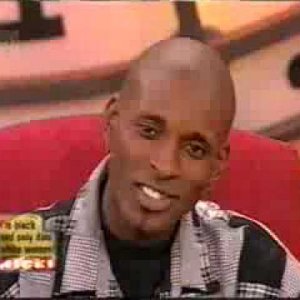- Feb 28, 2009
- 19,373
- 5,583

On this date in 1898, Queen Mother, an African-American activist and civil right leader, was born.
Queen Mother Moore was born Audley Moore in New Iberia, Louisiana. Her early experiences with racial violence in the South had a profound effect on her consciousness at a young age. Her parents died when she was in fourth grade and by age 14 Moore became the primary supporter of her two younger sisters, Eloise and Lorita. During the 1918 influenza epidemic, she worked as a volunteer nurse. During World War I, she and her two sisters traveled to Anniston, Alabama, to help create what she calls "the first USO for Black soldiers," which provided medical care, food, and other services for soldiers who were denied assistance by the Red Cross.
Soon she returned to New Orleans where she heard Marcus Garvey speak. This experience of collective unity deeply affected Queen Mother and resulted in her joining the Universal Negro Improvement Association (UNIA).
Queen Mother relocated with her husband and her two sisters to Harlem in the early 1920s. There she organized domestic workers in the Bronx labor market and helped Black tenants in their struggles against white landlords. She was arrested repeatedly for her activities, but she would not stop in her activism. In 1931, she participated in the Communist party's march in Harlem to free the Scottsboro boys. Inspired by the party's stance on anti-racism, Queen Mother joined the International Labor Defense and the Communist Party. During the 1930s, she organized around housing issues, the Italian-Ethiopian war, racial prejudice in film, and a host of other issues confronting poor and oppressed Black communities.
She was a Communist Party candidate for the New York State Assembly in 1938 and for alderman in 1940. She was also a member of the National Association of Colored Women and the National Council of Negro Women. By 1950, Queen Mother had resigned from the Communist Party and helped found the Universal Association of Ethiopian Women, which worked on welfare rights, prisoners' rights, and anti-lynching. In 1963, she formed the Reparations Committee of Descendants of U.S. Slaves to demand reparations for Blacks from the government. She drummed up support around the country to get over a million signatures to petition the government and was successful in presenting the signatures to President Kennedy in December of that year, the 100th anniversary of the signing of the Emancipation Proclamation.
In the late 1960s, Queen Mother was one of the first signers of the Republic of New Africa's Independence Charter, which called for the creation of five independently governed states. In the early 1970s, Queen Mother began to travel throughout Africa at the invitation of political leaders of newly independent African nations. She went to New Guinea, Ghana, Tanzania, Uganda, and Nigeria. Also in that same period, she was officially installed as "Queen Mother" in an Ashanti ceremony in Ghana. In the late 1970s, she helped to found the Eloise Moore College of African Studies, Vocational, and Industrial School in Parksville, New York, in memory of her sister who had died in 1978.
Declining health and advancing age slowed Moore’s long career of activism. She remained a constant presence in New York political circles, and was known and loved by activists nationwide. She was present when Nelson Mandela came to New York in the summer of 1990, and she was one of only five invited female speakers to address the Million-Man March in October 1995. The black liberation struggle lost a formidable warrior when Queen Mother Moore died May 2, 1997.
Reference:
Black Women in America: An Historical Encyclopedia
Volumes 1 and 2, edited by Darlene Clark Hine
Copyright 1993, Carlson Publishing Inc., Brooklyn, New York
ISBN 0-926019-61-9






 ... please make yourself at home ...
... please make yourself at home ... 